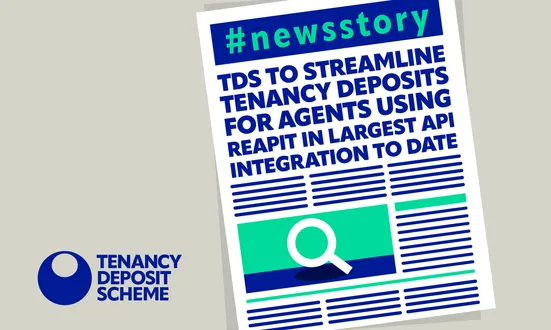When it comes to tenancy deposits, the change from summer to autumn can bring seasonal challenges for landlords, letting agents, and tenants alike. In this #ASKTDS, Sandy Bastin, Director of Resolution at the Tenancy Deposit Scheme, shares insights from an autumnal case that sheds light on crucial issues for landlords during this seasonal transition.
What happened in this case?
The story begins in summer when a new tenant moved into the property. Following guidelines from the Tenancy Deposit Scheme, a comprehensive check-in report was completed. This check-in document highlighted that there were no issues with the property’s exterior, including the garden, drains, and gutters.
TDS Tip: Check-in reports are pivotal for landlords, agents and tenants. They ensure clarity on the property’s condition at the start of a tenancy, helping prevent disputes later on.
Autumn arrives
With autumn’s arrival came blustery winds and rain, which showered the garden and surroundings with leaves. Then, by the end of the tenancy, the landlord conducted a final inspection and discovered blocked gutters and drains due to the fallen leaves.
The landlord decided to claim a total of £100 from the deposit, to clear the affected areas, and documented the findings in a thorough check-out report.
TDS Tip: Just as vital as check-ins, check-out reports document any changes in the property’s condition, crucial for resolving disputes fairly.
What was the tenant’s response?
The tenant decided to counter the claim, arguing they had maintained the garden to a high standard by clearing away all the fallen leaves they could reach. The tenant also pointed out that the tenancy agreement did not assign responsibility for external gutters and drains maintenance to the tenant, but instead noted that the landlord was tasked with this responsibility.
TDS Tip: Before you start drafting your tenancy agreement, take a moment to thoroughly review it. Are you completely clear on what you’re agreeing to? Keep in mind that terms can vary between tenancy agreements. Understanding your rights and responsibilities upfront is crucial to preventing potential disputes down the line.
What did the adjudicator decide?
The adjudicator reviewed the case and noted that the tenancy agreement lacked clarity on the responsibility for gutters and drains maintenance. Without a specific clause assigning this duty to the tenant, the adjudicator ruled in favour of the tenant, awarding the full deposit amount.
TDS Tip: Including a clear deposit-use clause in your tenancy agreement is essential to avoid such disputes. TDS provides suggested clauses tailored to both Insured and Custodial deposit protection schemes, you can find the guidance here.
Key lessons learned
This case highlights the importance of having clear and comprehensive tenancy agreements coupled with thorough property inspections. Here are some key takeaways for landlords to consider:
1. A well-drafted tenancy agreement should clearly outline the responsibilities of both the landlord and the tenant. This includes specifics on maintenance duties for common areas, such as gutters and drains. By including explicit clauses regarding these responsibilities, landlords can prevent misunderstandings and disputes at the end of the tenancy.
2. Conducting regular inspections throughout the tenancy can help landlords identify and address potential issues before they escalate. These inspections allow landlords to ensure that the property is being maintained properly and that any repairs are addressed promptly. Documenting the property’s condition during these inspections, along with check-in and check-out reports, creates a clear record that can be invaluable if disputes arise.
3. Tenants should be encouraged to report any issues as soon as they arise. Establishing clear communication channels can facilitate this process and ensure that both parties are aware of any maintenance needs. Regular reminders about reporting issues can help tenants feel more comfortable bringing concerns to the landlord’s attention.
4. Agents and Landlords must understand the limits of tenant responsibilities. While tenants should care for the property and report problems, they should not be expected to manage maintenance tasks that fall outside their control, such as clearing gutters or drains. Clearly defining these responsibilities in the tenancy agreement can prevent misunderstandings and protect both parties.
5. Agents and Landlords can reduce disputes by adopting a proactive approach to property maintenance. This includes not only responding to tenant-reported issues but also conducting routine checks on the property’s exterior and systems to ensure everything is in good working order. Staying ahead of maintenance needs can help avoid bigger problems down the line and contribute to a positive landlord-tenant relationship.
About TDS
The Tenancy Deposit Scheme is part of The Dispute Service (TDS), the largest tenancy deposit protection (by value) and resolution service provider in the UK making life easier for tens of thousands of agents, landlords, developers, and millions of tenants and homebuyers.
Our award-winning customer service is highly rated on both Trustpilot and Google, and we’re backed by the NRLA. We offer free deposit protection in our Custodial scheme, and the lowest rates for landlords in our Insured scheme.
Other news stories


